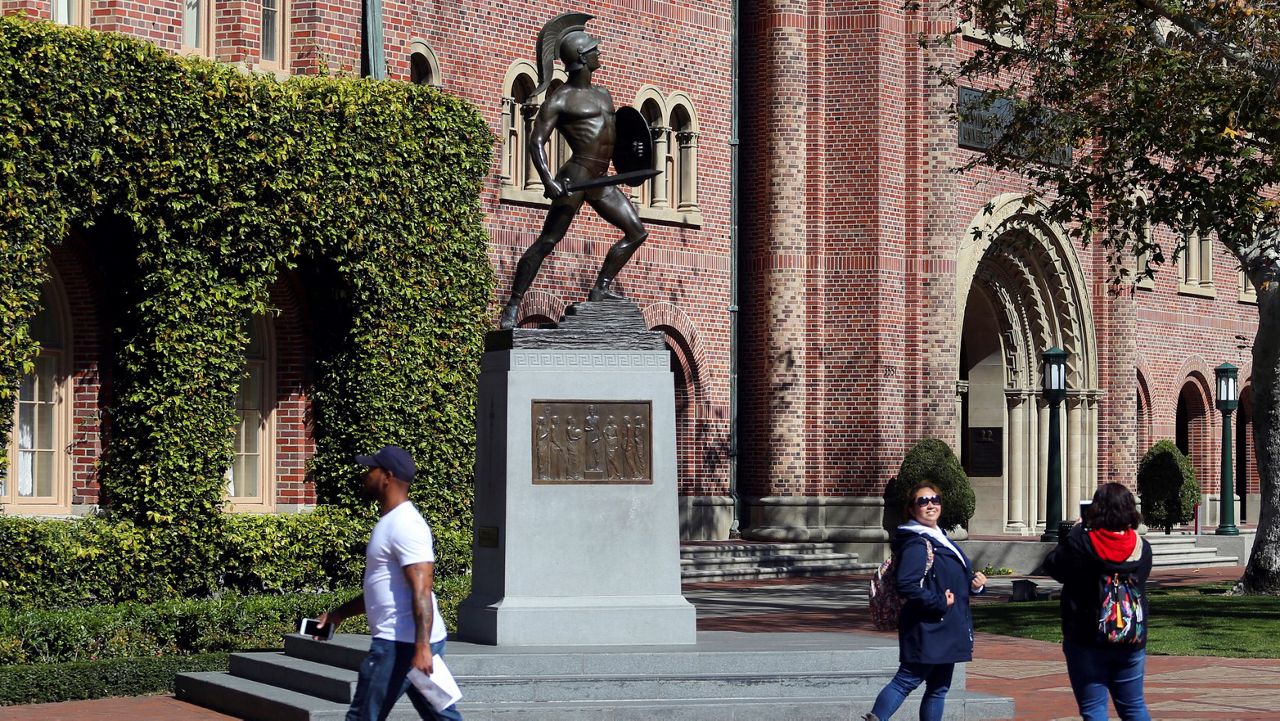LOS ANGELES (CNS) — The number of fraternities that have disaffiliated from USC has grown to eight, and the breakaway groups have formed their own organization called the University Park Interfraternity Council.
The fraternities hosted a recruitment fair Friday near the campus in the sort of “rush week” event that USC officials banned for freshmen in 2017 over hazing concerns, the Los Angeles Times reported.
The move to disaffiliate came after strict rules enacted by the school in response to multiple accusations of sexual assault at frat parties last year.
However, the UPIFC’s Harrison Murphy told The Times that the move to disaffiliate was not a reaction to the rules, but to what he said was the university’s unfair policies toward Greek organizations as a whole.
“I want to say unequivocally that no, we are not disaffiliating to dodge these social event policies that were put into place,” Murphy said.
The eight breakaway fraternities are Beta Theta Pi, Kappa Alpha Order, Lambda Chi Alpha, Pi Kappa Alpha, Sigma Alpha Mu, Sigma Chi, Tau Kappa Epsilon and Zeta Beta Tau.
In an Instagram post last weekend, the UPIFC said the new council was formed “to address significant shortcomings in the existing system. We stress at the outset that we remain deeply committed to our overall responsibilities to the USC community and to ensuring the safety of our members and guests. This new Council is designed to provide individual chapters and their members with a substantially more focused, timely and consistent process for input, discipline and accountability.
“... Over the past several years, our partnership with USC has significantly deteriorated, and became largely unworkable after USC unilaterally suspended, without explanation or cause, all organizational activities for nearly half of the 2021-22 school year,” the post continued.
The breakaway fraternities can no longer use the USC name, logo or campus Greek life resources, and students in the fraternities are still subject to campus rules and laws against hazing, sexual assault and other misconduct.
USC deplored the decision in its own Instagram post last week.
“We are disappointed that some USC fraternities are following an unfortunate national trend by disaffiliating from the university — against our strong recommendations,” the statement said.
“This decision seems to be driven by the desire to eliminate university oversight of their operations. The members are chafing at procedures and protocols designed to prevent sexual assault and drug abuse and deal with issues of mental health and underage drinking.
“They also object to not being able to rush freshmen in the fall — a practice that has been repeatedly shown to be unsafe for new students. In addition, they are pushing back at the time it takes to investigate serious issues like sexual assault. These investigations and their length are regulated by the state and federal government,” the statement continued.
“... This decision is detrimental and goes against 130 years of tradition. We strongly urge students not to join these unaffiliated organizations or attend their events, and we will continue to uphold our high expectations for behavior in our neighboring communities.”
USC President Carol Folt acknowledged last fall that the university waited too long to notify the campus community about allegations of drugging and possible sexual assaults at fraternity parties.
The allegations caused the school’s own Interfraternity Council to call a halt to all social activities at campus fraternities after the Department of Public Safety announced the allegations.
The new rules announced in January include posting security guards at stairs or hallways leading to bedrooms during parties and required sexual violence prevention training for all fraternity members.
Classes for the fall semester at USC are set to begin Monday.
